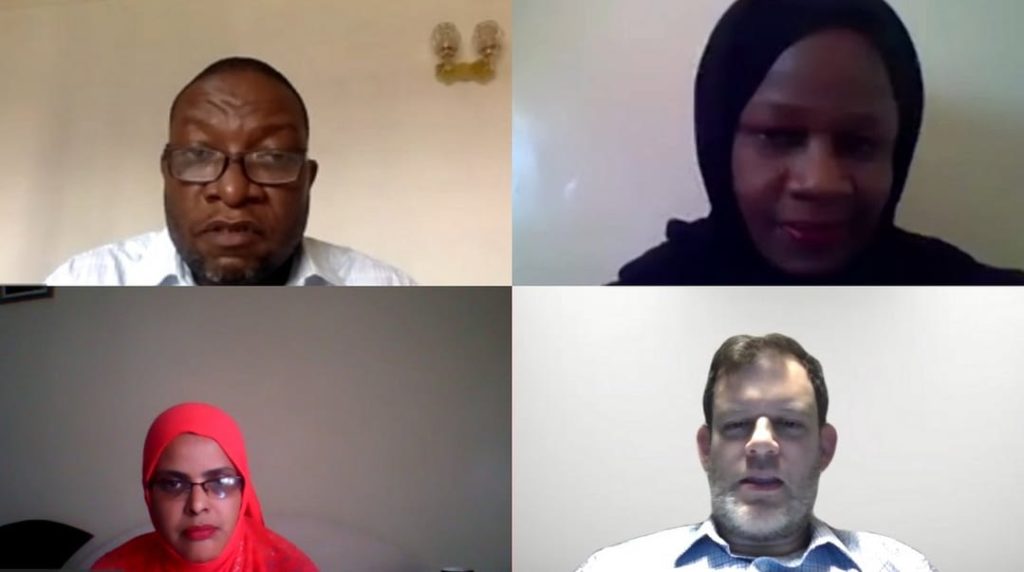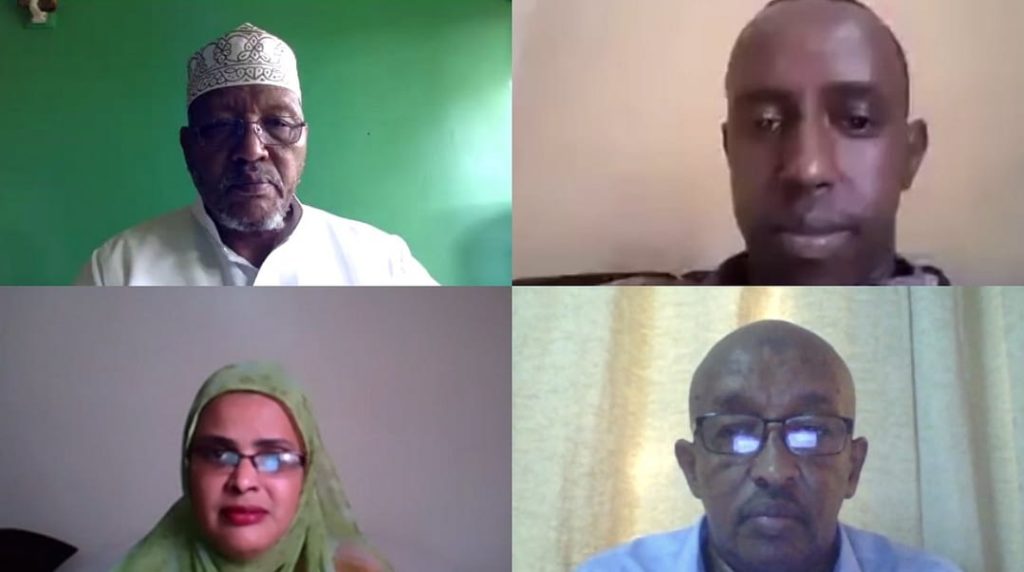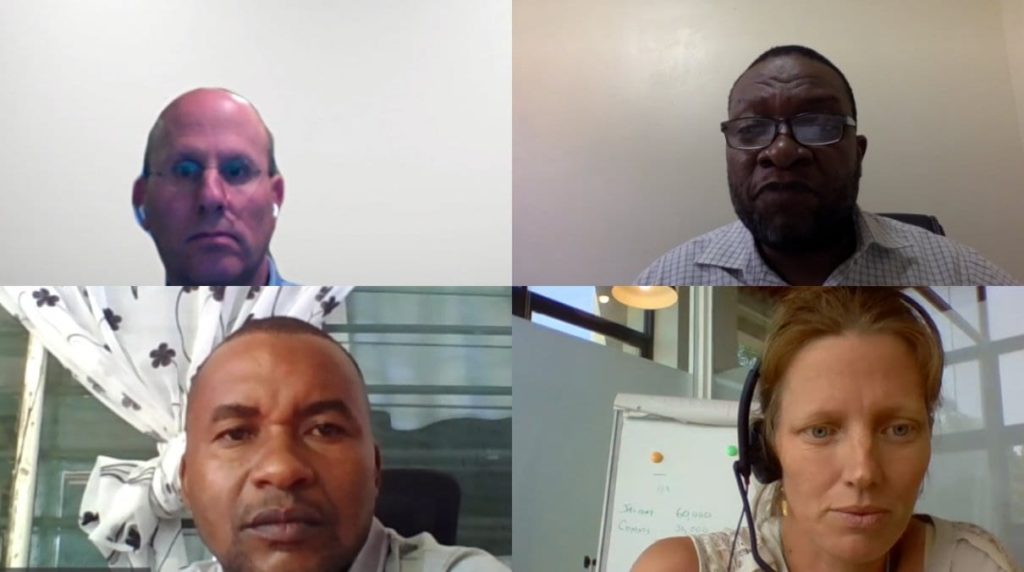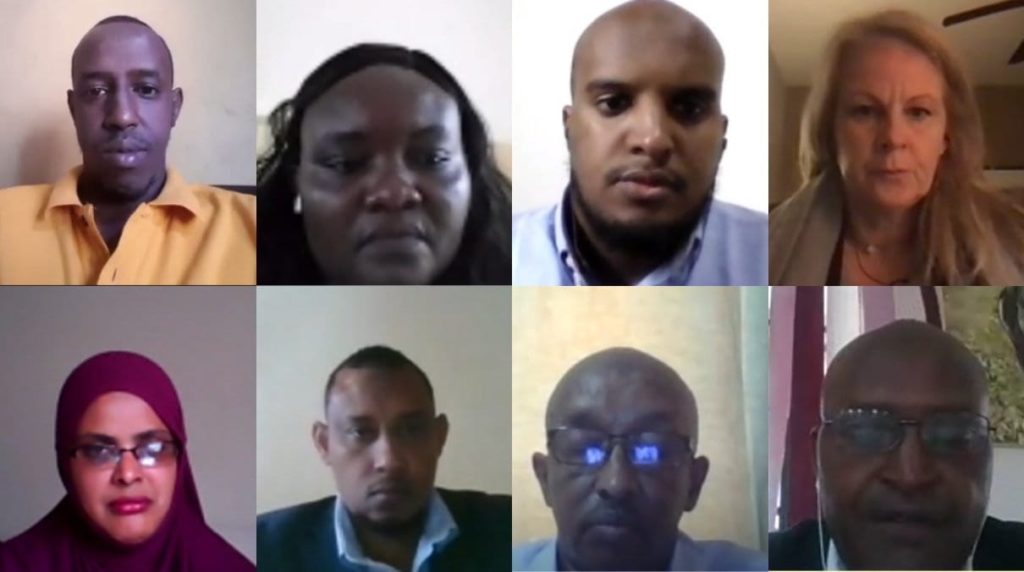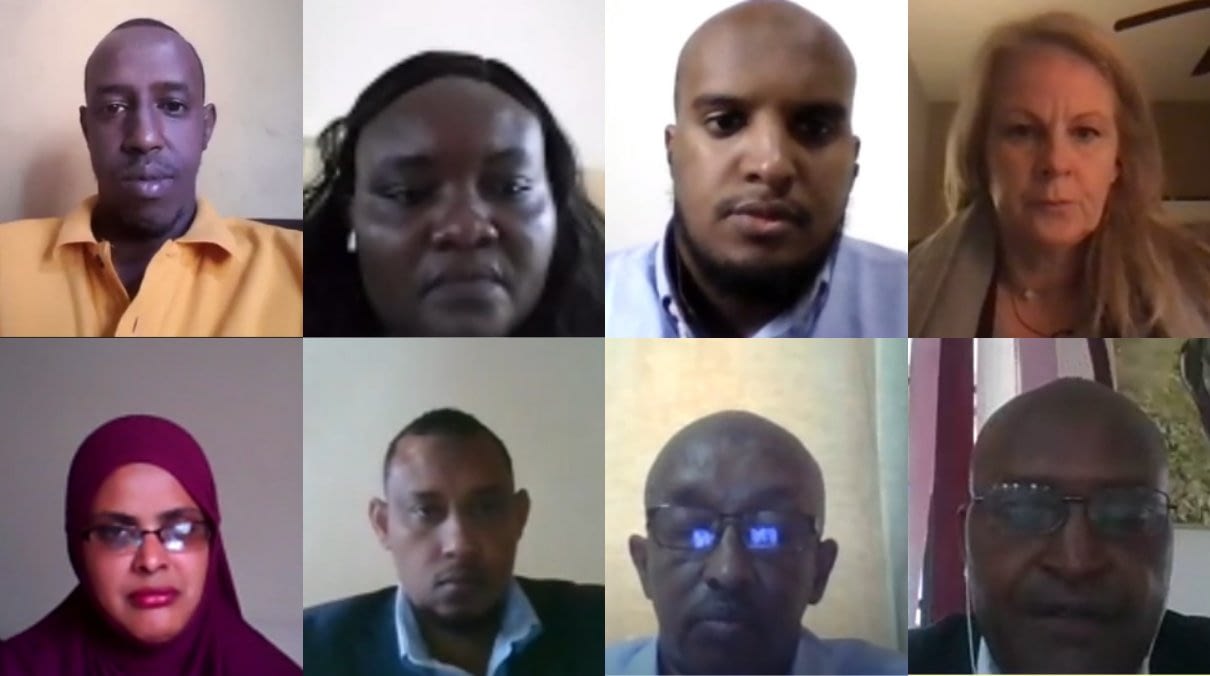
On 13 – 14 and 19 – 20 January 2021, the IIJ delivered an online workshop for 49 national and county government and civil society representatives from Kenya. The workshop, convened under the innovative IIJ Multi-Actor P/CVE Interventions Workstream, focused on how to design and implement multi-actor intervention programmes for preventing and countering violent extremism (P/CVE) that take into account the relevant local context and needs, including through the use of referral mechanisms.
Multi-sector and multi-level collaboration within countries has increasingly been recognised by policymakers and practitioners as an important tool to identify, intervene, redirect and support individuals who are assessed to be ‘vulnerable to’, ‘at risk of’ or already on the path to radicalisation to violent extremism and/or have expressed interest in engaging in terrorist activity, but have not committed crimes.
One of these forms of collaboration are known as ‘referral mechanisms’, which involve one or more local actors, including social and health workers, religious mentors, family members and civil society organisations (CSOs). Referral mechanisms enable the mobilisation of stakeholders who are often best placed to deliver an effective and preventative intervention because they have a particular competence, expertise, perceived credibility or legitimacy not possessed by local law enforcement authorities. These stakeholders can help bridge the gap where a case of concern has been identified, but law enforcement action is not deemed appropriate.
Acknowledging the effectiveness of these programmes, the IIJ, with support from the European Union, has been working in a project for the design of a first-of-its-kind training curriculum to support the development and implementation of multi-actor intervention platforms for P/CVE around the world. The IIJ has consulted with a range of key government and non-governmental stakeholders over the past several months to develop the content of this innovative curriculum and how best to transmit that content to interested practitioners and policymakers.
This online workshop represented a milestone in the project, as it was the first time that the curriculum was implemented. The goals of the workshop were therefore twofold. Firstly, to provide participating practitioners with additional skills on how to design and implement multi-actor P/CVE interventions underpinned by key principles such as being part of a wider, comprehensive, 'whole of society', rule of law-based approach to violent extremism. Secondly, the workshop was an opportunity to adjust and perfect the curriculum based on the feedback provided by participants as a means of ensuring it can better achieve the former during future course iterations.
The first two days of the workshop focussed on collaboration and partnership-building, the need to ensure that the diversity of actors involved in multi-actor intervention programmes share a common understanding of the relevant terminology and concepts, identifying the common features of these programmes while recognising there can be no 'one-size-fits-all', and assessing available capacities and resources.
During the final two days, participants learned how to develop a system for receiving information on individuals who might benefit from the programme; how to assess vulnerabilities, needs, and strengths; how to design and implement tailor-made interventions; and important considerations for monitoring and evaluating both the wider programme and the individual interventions it delivers or facilitates. Participating practitioners also explored the various ways in which stigma can complicate efforts to make progress with these programmes and identified opportunities for stigma-mitigation.
The workshop blended the presentation of knowledge and tools with the opportunity to practice integrating these into scenarios and working on case studies. It concluded with a capstone exercise during which practitioners had the opportunity to apply and share back what they learned as they developed a model multi-actor programme suited to the local context.
With the feedback gathered, the IIJ is now refining the training curriculum and working on the organisation of a second pilot programme that will be delivered online in March 2021.
For more information on this workshop or the IIJ Multi-Actor P/CVE Interventions Workstream, please contact Programme Manager Adrián Carbajo.

